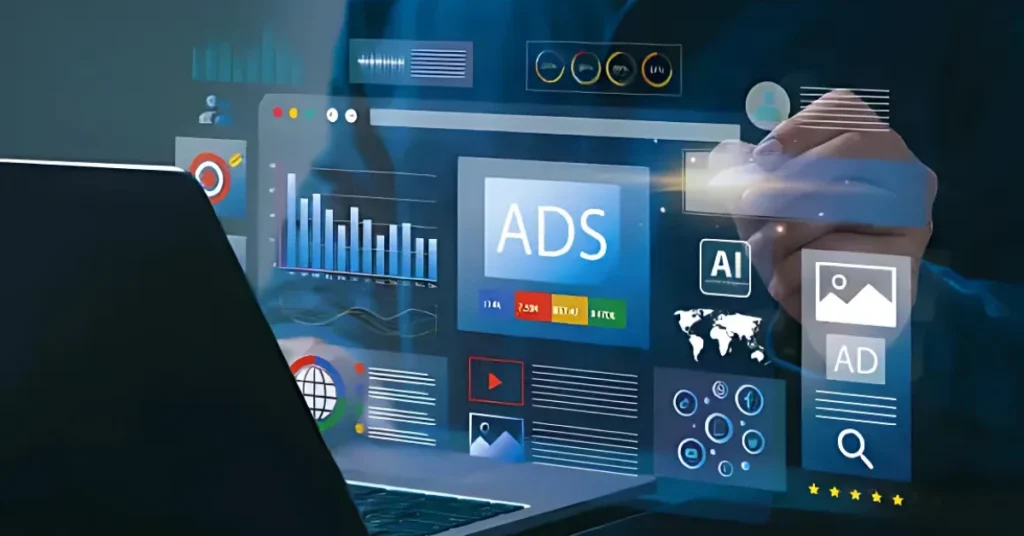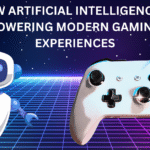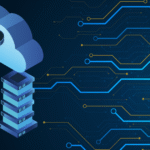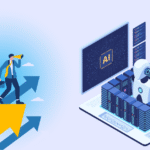Artificial intelligence has now become a powerful tool for every sector. Every business is adopting AI for its growth and sustainability. It is not just a technology but has become a strategy that is driving companies. AI tools enable fast and accurate decisions that were not possible before. This enables organizations to free up time and money and concentrate on growth and the satisfaction of customers. Every business wants to be a leader in its industry, and AI is becoming its key partner. By 2025, AI will be broadly adopted, and those companies that don’t adopt it will be left behind.
Making decisions based on data
The only leverage that a business can now enjoy is a data-driven strategy. AI systems analyze big data and suggest accurate results. Data is the backbone of every business and AI interprets it and provides clear direction. Managers and leaders now rely more on AI analysis than intuition. AI provides predictive analytics that are helpful for future scenarios. These devices identify patterns that cannot be easily detected by the human eye. Any business that uses data properly stays ahead of its competitors. A data-driven culture has now become a standard practice seen in every industry.
- AI predictive analytics supports business with accurate planning.
- Risk is mitigated and profitability is improved when driven by data.
Changing the customer experience
AI is redefining the customer experience. Any business aims at offering faster and custom services to clients. Chatbots and AI assistants now solve customer queries instantly. Earlier users had to wait but now AI provides real-time solutions. Personalization is the goal of every business and AI makes the process efficient. Any business aims at offering faster and custom services to clients. It improves customer loyalty and trust. Customer satisfaction is an important factor for every business and AI is helping to achieve it at a higher level.
Automation and efficiency
One of the biggest benefits of AI is automation that increases productivity. Routine and repetitive tasks are now being handled by AI. Human staff are focusing their attention on complex and creative tasks. Automation is being applied in all fields of production starting with manufacturing and ending with finances and healthcare. Automated workflows reduce human error and improve accuracy. Integration of AI systems reduces business costs and increases operational speed. Along with efficiency, quality also improves, which is a double benefit for the business. By 2025, automation will become an essential process required for a competitive market.
Cybersecurity and AI
Along with the spread of the digital world, cyber threats are also increasing. Businesses are adopting AI-powered technologies to enable their protection. AI detects deviations and alerts in time. They are systems that perform ongoing network checkups and identify their weaknesses. AI algorithms also trace and block advanced hacker attacks. The issue of data protection is a priority of any business and AI is turning it trustworthy. The combination of cybersecurity and AI has become a powerful defense system that is essential for future challenges.
AI in Marketing

The world of marketing has become incomplete without AI. Every brand is optimizing their campaigns with AI. AI analyzes customer behavior and identifies target audiences. Personalized ads and messages generate higher conversion rates. Campaigns are no longer based on guesswork but on data insights. AI provides real-time reporting to measure ROI. Social media platforms are also improving engagement and visibility through AI. Every company wants its brand image to be strong and AI is making it achievable.
AI in Healthcare
The application of AI in the sphere of health care is becoming active by leaps and bounds. It has enhanced the validity of the diagnosis and the treatment regimen in the instance of utilizing AI tools. By using AI systems, health information about patients is interpreted and the doctors get speedier answers. Telemedicine and remote monitoring are also made possible by AI. Workload on healthcare staff is reduced and efficiency is improved. Artificial intelligence is so ineluctably advancing drug discovery and clinical trials. The level of quality of patient care is reaching unprecedented heights with AI.
- AI makes patient care safer and more reliable.
- Health care costs are reduced and access to treatment is improved.
AI in Finance
AI has emerged as one of the solid pillars in the finance industry. Fraud detection systems generate instant alerts through AI. Credit scoring and risk assessment are now more accurate and fair. Trading strategies are being automated by AI algorithms that predict market trends. Customer support chatbots solve urgent financial queries. AI makes compliance monitoring easier for banks and institutions. Both the speed and reliability of the finance sector are being enhanced by AI.
AI and workforce evolution
AI has had a profound impact on workforce dynamics. Adoption of AI is increasing in every sector. Earlier humans handled repetitive and routine tasks. Artificial intelligence can perform these fast and accurately. Employees have to upgrade their skills. Traditional skills are useful only at the basic level. Technological and digital literacy is becoming more important in the new era.
Companies are actively undertaking training and reskilling programs. These programs teach employees to use AI tools and digital platforms. This improves both productivity and efficiency of staff. Employees learn to collaborate with AI. Every company wants their workforce to be AI-enabled. This change creates a long-term competitive advantage.
No jobs are being destroyed, which is changing in nature. Simple data entry jobs are being replaced. But new job roles are being created with the integration of AI. Data analysis and AI system management are added to the new roles. Employees are also supposed to acquire critical thinking and problem-solving techniques. This makes them effective with AI systems.
Workforce transformation is a gradual process. All organizations are implementing it gradually. Companies that do not implement AI fast enough are at risk. Their competitive power in the market can be lost. Companies that adapt quickly thrive. The role of employees is also changing. It has become necessary for every worker to be technology friendly.
The combination of workforce and AI is becoming a powerful model. AI handles repetitive tasks. Human creativity and decision-making are still unique and essential. This synergy allows organizations to develop innovative solutions. This is becoming a sustainable model in the long run. Both AI and humans combine their strengths. This integration makes the business stronger and more adaptable.
Key points for workforce evolution
- AI replaces repetitive tasks and increases efficiency.
- Employees will have to learn new digital and AI skills.
- Training and reskilling have become essential for every company.
- Jobs do not disappear but change.
- Human and AI collaboration is becoming a new model of success.
Additional insights
- Flexibility has become a very critical expertise in the labor market.
- Management teams should establish the environment of accepting AI.
- This is a significant challenge of changing it to the mindset of the workforce.
- The speed at which AI should be integrated into any given industry differs.
- Workers who adopt it early are safer.
This section clearly shows that AI is redefining the workforce. It is impossible to ignore this change. Both companies and workers will have to adopt a proactive approach. Only a balanced partnership of AI and humans can bring success in the long run.
AI ethics and responsibility
Various questions of ethics and responsibility are being brought up with the integrations of AI as well. Companies have to ascertain that the AI systems exist without bias. AI systems must feature transparency and accountability. Its ability to protect the privacy of customer data is necessary. Regulatory bodies are developing strict frameworks for AI. Business reputation is directly linked to the ethical use of AI. Companies that uphold ethics have strong brand trust.
AI in global trade
Global trade is becoming faster and more transparent through AI. Supply chains are being optimized and demand forecasting is becoming more accurate. Logistics companies are improving their performance with AI tools. Transactions involving foreign countries have been made safer and quicker. The world is getting busy every day and AI is aiding in business growth. Trade and commerce are getting fast like never before with the use of AI.
AI and Sustainability
Sustainability has now become a priority for every business. AI optimizes resources and reduces waste. Monitoring energy consumption and intelligent resource allocation has become easier with AI. Businesses are implementing their green initiatives through AI. AI is playing an important role in reducing the environmental impact. Sustainable development and AI integration have become a strong combination.
The future of AI in 2025 and beyond
The future of AI will be even more powerful and comprehensive. The presence of AI will become mandatory in every industry. Businesses that adopt AI will grow faster. The competition will become even tougher and survival will depend on the development of AI. AI will have more advanced forms after the year 2025 that will alter the game even further. The process of integrating AI is a long process that will force companies to keep evolving.
Conclusion
Artificial intelligence is no longer an optional tool in the life of the modern world. It is a mandatory aspect of sustainability and expansion of any business. All industries are adopting AI and altering their processes and strategies. By 2025, AI will be playing an even greater role. All companies that embrace AI will be future-proofed leaving laggards behind. The implementation of AI is not only a technological process but also a business transformation path that can ensure long-term success.











